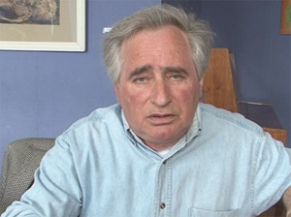|
Analytics

Yakov Basin
|
Anti-Semitism in Belarus
16.10.2009, Xenophobia and anti-Semitism Yakov Basin
Despite a certain liberalization throughout 2008, Belarus still remains one of the few states on the territory of the former Soviet Union, which has retained nearly all attributes or a totalitarian regime. In the national sphere, policy is of utmost importance, and current policy is one where the authorities provide little or no help to ethnic minorities which are engaged in preserving their national identities or developing their traditions and culture. In the conditions of a centralized social and economic life, this factor is of great importance.
Belarus social life has retained a rather visible tendentiousness towards Jews. Scientific literature, encyclopedias, reference books, and school books often remain silent of the history of Belarus Jews and the tragedy of the Holocaust. A number of cities – Minsk, Mogilev, Brest, Borisov – are faced with the matter of returning buildings which were built with Jewish money and used to belong to Jews to the Jewish community. Currently, the Jewish and religious organizations of these cities are forced to rent their premises.
Criminal anti-Semitism in Belarus has been suppressed “from above.” Thus, such events as the beating or killing of Jews or attempts to set fire to synagogues are absent. The only manifestations of criminal anti-Semitism are acts of vandalism in Jewish cemeteries and on memorials to victims of genocide. In 2008, the criminal case for which a youth group in Borisov was convicted included defiling a memorial.
Until recently, the Jewish community was mostly worried by numerous incidents of anti-Semitic propaganda, including the anti-Semitic rhetoric of politicians, the dissemination of anti-Semitic literature, and neo-Nazi graffiti on city streets. However, the state had been very active during 2008 in this direction, and removed a number of public figures notable in the past for their chauvinistic rhetoric. The provocative factor for this were the utterances of Alexander Lukashenko in the autumn of 2007, which were not respectful enough of the Jewish mentality and the Jewish people, and which struck a serious blow to Jewish self-esteem. Among the chauvinists of the Great Imperial Russian kind that had left the public arena were: Nina Chaika, the editor-in-chief of the “Neman” magazine, Edward Skobelev, the editor of the bulletin of the President of Belarus, Sergey Kostyan, a former parliamentarian, Vyacheslav Rostikov, a journalist of the “Republic” newspaper, and others.
The closed corporation “Christian Initiative,” whose actions aimed at creating inter-ethnic strife and consolidating people with anti-Semitic leanings around itself had even been publicly condemned by the exarchs of the Orthodox Church in 2006, has been put under great administrative pressure. Several kiosks belonging to the “Christian Initiative” were closed. The organization was also fined severely for publishing and disseminating literature unrelated to the Orthodox Church's activities. Nonetheless, in 2008 “Christian Initiative” published a new book with anti-Semitic content, written by an associate professor of the Belarus State University, Valery Yarchak, titled “The Words and Deeds of Ivan the Terrible.”
A number of cities hosts marginal youth groups, whose ideology is based mostly on racism and anti-Semitism. In Vitebsk, one such group speaks for the Vitebsk division of the “Russian National Unity”movement. Participants of this group beat public activists and write letters containing insults to leaders of Jewish organizations. One such letter in the spring of 2008 contained threats of physical assault if work on creating a Holocaust memorial is not stopped.
The wreaths at the obelisk in Brest erected in memory of Holocaust victims have been burned yearly for years now, and yet the culprits have not been caught yet,
An organized act of vandalism continues in a series of anti-Semitic acts in Slutsk. In October 2007, two weeks after the opening of the memorial to the victims of the Slutsk ghetto, the building of the local Jewish community was covered in swastikas and threats. In the spring of 2008, swastikas were drawn with a stencil on the memorial itself. The authorities have not taken any measures again.
Traces of vandalism have been found on the stone erected in memory of the Hamburg Jews who died in the Minsk ghetto.
The general atmosphere in the republic was greatly improved by a series of events dedicated to the 65th anniversary of the dissolution of the Minsk ghetto . Many events contributed to a strengthening of tolerance in the Republic, including Lukashenko's speech in the Minsk “Yama,” a series of publications in the “Soviet Belorussia” newsletter, the opening of new memorials in Minsk, Mogilev and Bobruisk, the invitation of a significant number of international guests to memorial events at the expense of the Belarus budget, exhibitions in museums and art galleries, and the rehabilitation of the name of Masha Bruskina, a Jewish member of the underground.
|
|
